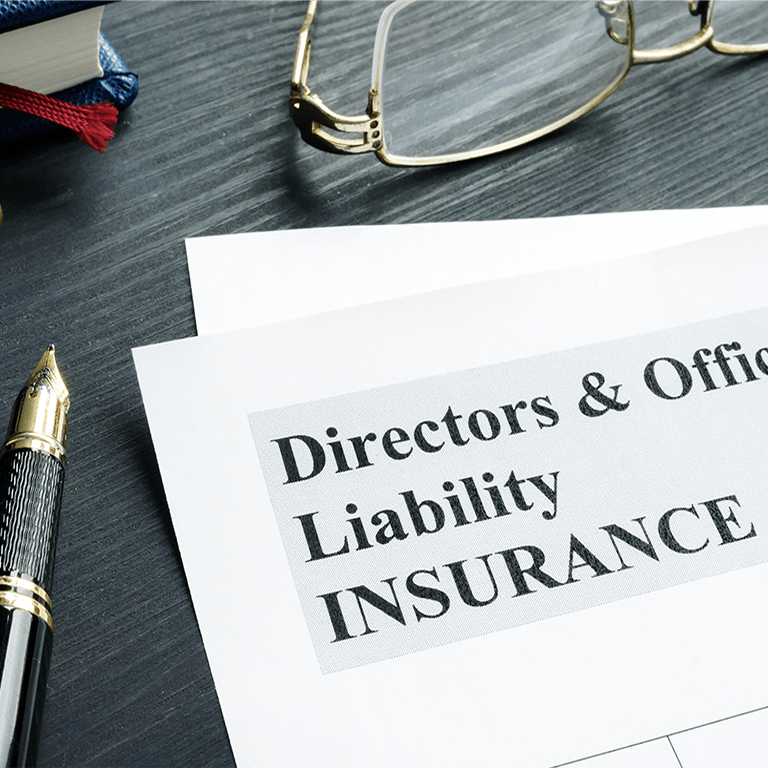Directors' & Officers' Liability Insurance

Protecting Your Future with Directors’ & Officers’ Liability Insurance
Directors’ and Officers’ (D&O) Liability Insurance is an important form of protection that many small businesses may overlook, often assuming it's only relevant to large corporations. However, D&O cover is increasingly relevant across all sectors, including early-years and childcare settings.
Why consider D&O cover?
In recent years, businesses have faced a range of challenges - from difficulties in recruitment to rapidly adjusting to changing government regulations. These decisions, made in good faith, can sometimes lead to unintended consequences. D&O insurance is designed to help protect directors, senior managers, and decision-makers if claims arise from such decisions.
What could a D&O claim look like?
Consider a scenario where a director receives a letter notifying them of legal action related to a decision made months earlier, perhaps about a redundancy, a financial disclosure, or a regulatory obligation. Such claims might come from employees, regulatory bodies, or other third parties, and they can be costly and time-consuming, regardless of the outcome.
Claims can involve:
• Breach of duty or trust
• Negligence
• Errors or omissions
• Misstatements or misleading information
• Allegations of wrongful trading
Even if a claim is successfully defended, legal costs can mount quickly. In some cases, businesses may not be able, or permitted, to reimburse individuals for these costs, particularly if no insurance is in place.
What does D&O Insurance cover?
D&O insurance provides indemnity to individual directors and officers for legal costs and compensation arising from allegations of wrongful acts. In many cases, policies can also reimburse the business if it has covered a director’s legal costs. This can apply to civil, criminal, or regulatory claims.
It’s important to note that D&O insurance does not cover physical injury or property damage, which would be insured under other policies, such as Public Liability or Employers’ Liability Insurance.
What is Entity Cover?
Originally, D&O policies were designed to protect individuals. However, businesses themselves can also face legal action alongside their directors. That’s where Entity Cover comes in. It extends the D&O policy to cover the organisation itself, helping protect against claims brought directly against the company.
Given that claims can be brought against both the business and its directors simultaneously, Entity Cover is a valuable addition to consider.
How does it work?
D&O cover operates on a ‘claims made’ basis. This means the policy must be in force at the time a claim is made, not when the incident occurred. This feature also allows cover to be extended to previous decisions or actions taken before the policy’s start date (subject to terms and conditions), providing flexibility and reassurance.
If a director retires, steps down, or the business is sold, ‘run-off’ cover can also be arranged to continue protecting against future claims relating to past actions.
Who needs D&O cover?
Anyone involved in making strategic or operational decisions on behalf of a business could be held personally accountable. In smaller businesses, directors often wear multiple hats (HR, finance, operations, and compliance) and may not always be aware of the full scope of legal responsibilities they carry.
In sectors like early-years education and childcare, where regulatory oversight is high, D&O cover can be a crucial part of your risk management approach.
Important Exclusions and Policyholder Responsibilities
While D&O insurance provides comprehensive protection, there are certain exclusions and obligations you need to be aware of:
You will not be covered for:
• Fraud, dishonesty, and illegal profits
• Medical malpractice
• Actual or attempted sexual relations, sexual conduct, sexual harassment, or sexual exploitation
You must:
• Provide notice in writing of any circumstance that may give rise to a claim against any director, trustee, or officer. This must include full details of the potential claim and be submitted as soon as reasonably possible — and in any event, within 30 days of the end of the period of insurance
• Not admit liability for, attempt to settle any claim, or incur defence costs without the insurer’s written consent
Understanding these conditions is crucial to ensure you’re fully protected when it matters most.
Next steps
D&O Insurance can be tailored to the specific needs of your business and its leadership team. The cost is often modest compared to the potential financial and reputational risks involved. It offers reassurance that should the unexpected happen, you have support in place.
If you’d like to learn more or request a quote, please get in touch with our friendly team: 0330 058 9861 or email cic@mortonmichel.com